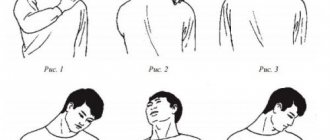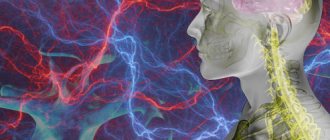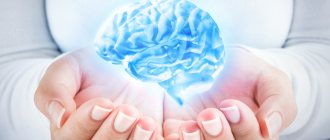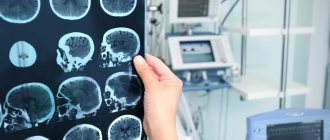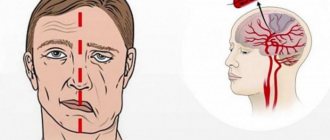Symptoms
In addition to feeling great with a feeling of comfort and carelessness, euphoria is manifested by a specific facial expression: a meaningless smile, an unfocused gaze, relaxed facial expressions. Contact with such a person can be unproductive: answers after a pause, undeveloped, not always to the point. If you ask to perform any mathematical operation, it will be performed with an error or will take a long time. A person in a state of euphoria is characterized by easy laughter and disinhibition (sexual, food) with a lack of a sense of distance and adherence to etiquette.
How to achieve a state of euphoria?
Unlike chemical stimulants, natural neurochemicals do not cause addiction and do not destroy the psyche. But the positive effects from them are no less pleasant. Therefore, researchers regularly develop new techniques that allow you to experience the experience of happiness without third-party chemicals.
Breathing exercises.
The holotropic breathing technique helps to achieve a special or trance state. Holotropic breathing is a combination of intense breathing with special physical exercises and music. In the 70s of the twentieth century, this technique was developed by psychiatrist Stanislav Grof. Holotropic breathing is used in psychotherapy sessions: it helps a person dive into his unconscious, relive painful memories, and express emotions. This breathing technique replaced the banned drug LSD, and in terms of its effect it should have completely replaced it.
Despite the absence of physiological dependence, the technique cannot be practiced without preparation on your own. These should be group or pair lessons, which are conducted under the supervision of an instructor. His task is to provide assistance when necessary. For example, altered consciousness can cause a painful memory in a person, which is very difficult to experience on one’s own. The instructor helps you overcome a painful situation and comprehend what you have experienced. The practice is contraindicated for those who suffer from cardiovascular diseases and are registered with a psychiatrist.
Intense workout or jogging.
A pleasant runner's high occurs after a long run or interval training. Even a beginner can achieve this sublime feeling, and at the same time improve his physical fitness. When jogging, a feeling of joyful lifting occurs after a 30-45 minute run. It is recommended to start at a slow pace, and after a good warm-up, make a sharp jerk and run at a maximum pace for 2-3 minutes. For intense training, it is recommended to alternate strength exercises (push-ups, lifting barbells) and cardio exercises (riding an exercise bike, jumping rope).
To feel an emotional uplift during physical activity, you need to work hard and constantly listen to the sensations in your body. The high comes during super-effort, when the athlete overcomes his own “I can’t.” A pleasant state is described in different ways: one feels invincible and joyful, while another notes a noticeable improvement in mood. But the self-awareness of joyful intoxication during exercise should not be an end in itself. Therefore, it is worth starting a workout or race under the supervision of an experienced trainer.
Music.
It has been proven that musical compositions act on the same “pleasure centers” in the brain as drugs. That's why listening to your favorite melody causes goosebumps, chills or slight trembling. To achieve the feeling of flight, there are special melodies and special techniques. For example, meditation music helps you relax and concentrate at the same time, and enter a state of trance. The experience of happiness can also be achieved by listening to “white noise”.
When listening to music, the personality of the listener and his memories are of great importance. The same melody can cause opposite reactions in two people. Moreover, prolonged listening to meditative music or white noise can cause hallucinations with unpleasant physical sensations: nausea, weakness, dizziness, headache. To avoid troubles, you should consult a doctor before starting training. At the first unpleasant sensations, you will have to immediately stop experiments on your own psyche.
Love.
It is enough to fall in love for the body to start producing joy hormones at a breakneck speed. The main effect of all these substances is a state of euphoria: the world around becomes rosy, the future seems cloudless, any undertakings seem feasible. And also “butterflies in the stomach”, shining eyes, a feeling of slight intoxication.
Creation.
Creative people call euphoria a state of flow. In a state of flow, a person concentrates on his work for a long time and practically loses the sense of time. But at the same time he is focused and focused on success. The state of flow is given to experience not only by a select few. Anyone who does what they love can feel it.
Prayer.
The state of euphoria during prayer in Christianity is called “grace.” Neurophysiologists study the influence of prayer on the brain. Scientists have found that the special euphoric state of a praying or meditating person is caused by a specific response of brain cells. In addition, incense vapors have a psychoactive effect and enhance the effect of sincere prayer.
There are other healthy methods to induce the amazing feeling of “flight”: extreme sports, sex, delicious food, getting work done, spontaneous gifts and even acupuncture. Our capacity for emotions is limited. The constant pursuit of pleasure hormones can be as addictive as chemical stimulants. In order not to undermine the hormonal balance in the body, you should allow yourself to receive pleasure from different sources. The main thing is not to wait for someone else to make you happy or for that very lucky coincidence of circumstances to happen.
conclusions
- Euphoria in psychology is a state of joyful excitement. In medicine, it is a painful condition associated with brain damage.
- Life is rosy, butterflies in the stomach, rose-colored glasses - it's all about euphoria.
- Euphoria takes too much energy, so it often ends in fatigue, apathy or depression.
- A constant euphoric state takes up too much energy, so it passes very quickly.
- The highest manifestation of euphoric pleasure is ecstasy. Chasing it can be addictive.
- There are many healthy ways to experience joy. If you learn to alternate them, you can experience happiness all the time.
Take the perception type test
In psychiatry
For psychiatrists, euphoria is a symptom that is a signal of trouble in the brain and an indicator of altered consciousness, equivalent to a state of stupor. Characteristic is not only a slowdown and simplification of thinking, but a decrease in receptivity and sensitivity (for example, pain). Euphoria is one of the symptoms characteristic of dementia. One of the types of psychoorganic syndrome or encephalopathy (organic brain damage) is called euphoric. In addition to dementia and psychoorganic syndrome, euphoria can be a symptom of the following psychiatric diseases: psychosis, mania, epilepsy, personality disorders, mental retardation, etc.
Insensitive to temperature
This condition when a person can calmly pick up hot frying pans or touch pieces of ice with his bare hands without feeling their temperature at all is called thermaneesthesia. This option is considered by some to be a gift. However, in fact, there is nothing particularly to rejoice at when it appears. After all, a violation of sensitivity of this kind and the development of a condition when a person does not perceive thermal stimuli indicates that he has an organic lesion of the gray matter of the brain. It develops when there is a tumor in the brain or due to a spinal injury. This type of pathology also occurs with functional disorders, for example, with hysteria.
It is also worth considering the fact that although a person can take hot and cold things with his bare hands, this does not protect him at all from getting burns and frostbite. And such consequences will have to be treated long and difficult.
In narcology
Euphoria is the main sign of intoxication or intoxication. In such cases, euphoria consists of a whole series of “sweet” experiences and sensations: a feeling of pleasant bodily well-being (in the form of warmth, air waves throughout the body), mental pleasure and the absence of any tension, it seems that everything around has become clear. If the euphoric state is caused by taking a drug or alcohol, then it is accompanied by neurological changes: coordination disorders and decreased reflexes.
Conditions similar to euphoria: mania, hypomanic state.
What is euphoria?
Often, joy and happiness can be confused with a euphoric feeling, manifested by a number of positive and
negative signs.
This human condition has the following positive symptoms:
- calm;
- bursts of joy;
- lasting feeling of bliss;
- well-being;
- clearing the mind;
- fast response;
- good spirits;
- energy;
- presence of desire for activity;
- other.
Read our article “A rosary made of 108 beads: symbolism and practical application.”
In any situation, a person is not inclined to perceive this feeling as an opportunity to harm his health, even if he knows about the presence of negative symptoms. Among which are:
- feeling of being in another reality (confused consciousness);
- “déjà vu” (at first it interests you, but later it causes discomfort and even mental disorder and paranoia);
- increased anxiety;
- phobias, fears;
- depression.
Quite often, instead of a joyful “aftertaste,” people fall into long-term depression. He simply cannot cope with everyday problems after a euphoric state. They become insurmountable barriers for a person, this is how consciousness perceives them.
In fact, different things and phenomena cause an enthusiastic state in people. It all depends on the character, temperament, and emotionality of the person. Some people fall into a euphoric state listening to classics or metal, rock, etc., another person admires a beautiful sunset, and a third - a fast car ride.
Causes
The causes and mechanisms for the development of euphoria lie in inhibition of the cerebral cortex and disinhibition (overexcitation) of subcortical structures. This can be caused by both diseases and non-painful conditions:
- Resolving a conflict or significant problem, achieving an important and useful result.
- Love.
- Influence of art: music, literature, images, etc.
- Alcohol intoxication, drug intoxication.
- Infections and poisoning.
- Organic mental disorders, mental retardation.
- Psychoses, schizophrenia spectrum disorders.
- Personality disorders.
Atrophy of the anterior parts of the cerebral cortex (for example, in Pick's disease) leads to chronic euphoria against a background of disinhibition and dementia. An increase in endorphin levels in the blood also causes euphoria.
What types of euphoria occur
As mentioned above, “positive” euphoria has a short duration and an external reason for its appearance. The pathological form is characterized by a prolonged manifestation and unmotivated reasons.
The danger of pathological euphoria, that is, caused by artificial reasons, is that it very quickly draws a person in and becomes addictive. If a person starts using drugs that cause euphoria, then he wants to experience it again and again. If it is not possible to experience joy to the required extent in natural ways, then he plunges into depression, feels increased nervousness and irritability, outbursts of uncontrollable aggression and intense anger. Dependence on euphoria forces one to provoke its manifestation with the help of artificial means, such as alcohol and drugs.
Depending on the causes of occurrence, euphoria can be divided into the following types:
- Love. This type of euphoria is expressed in positive emotions and a feeling of happiness during the period of falling in love.
- Musical. Enjoyment from the influence of sound waves on the brain. Musical euphoria often occurs in adolescents and young children. It causes quite a strong addiction, which is expressed in the desire to regularly visit nightclubs.
- Alcoholic. Abuse of alcohol-containing drinks leads to the formation of foci of oxygen starvation in the brain, which provoke a feeling of euphoria. While a person is in this state, he experiences acute pleasure and a feeling of happiness. However, after alcohol intoxication wears off, a person begins to experience depression and a desire to plunge back into the pool of pleasure. This is the reason for addiction to alcohol.
- Narcotic. In fact, this type of euphoria is similar to alcoholic euphoria, the only difference is in the means that causes it. The use of psychotropic substances causes euphoria and ecstasy and causes physical and mental dependence. After some time, a person feels an urgent need for another dose in order to again experience acute pleasure.
Euphoria is not a feeling that should be ignored. Its pathological form can lead to consequences such as: the development of diseases, attempted suicide and the commission of uncontrollable and sometimes dangerous actions. If euphoria is a consequence of artificial causes, then you will not be able to recover on your own. In this case, you should immediately seek help from specialists.
Treatment methods
Pathological forms of a euphoric state are usually treated with medications, droppers and psychotherapeutic techniques.
Drug treatment
Treatment of the euphoric state is carried out with the help of tranquilizers, vascular drugs, and antidepressants.
Relaxant
| Drug groups | Influence on aggressive behavior | Examples of funds |
| Normotimics | They relieve sudden mood swings and smooth out the transitions from euphoria to depressive states. Used as symptomatic therapy. | Valpromide, Carbamazelide |
| Tranquilizers | Relaxes and calms, relieves unbalanced behavior. Used for mental forms of euphoria. | Hydroxyzine, Phenazepam |
| Antipsychotic drugs | They are used for mental illnesses that cause a feeling of excessive joy, pleasure and happiness. | Haloperidol, Quetiapine, Clozapine |
| Sedatives with natural ingredients | They relax and calm the nervous system, allowing you to cope with pathological causeless joy. Reduce the symptoms of a euphoric state, relieve hysteria and imbalance. | Persen, Novo-passit, |
| Sedatives with alcohol | Valosedan, Corvalol | |
| Bromine-based sedatives | Adonis Brom, Bromcamphora | |
| Other sedatives | Magnesia, Afobazole | |
| Nootropics | Stimulate blood circulation, improve intellectual abilities and memory. Used for head injuries or problems with blood supply to the brain. | Picamilon, Nootropil, Phenibut |
| Antidepressants | Increases the amount of neurotransmitters in the brain. They help overcome depression, which causes unmotivated delight. | Melipramine, Trizadone, Fluoxetine |
| Diuretics | Cause forced diuresis, help get rid of the euphoric state caused by toxic causes | Diakarb, Trigrim |
| B vitamins | They improve the functioning of the nervous system, help cope with unstable conditions, and smooth out the symptoms of euphoria. | Angiovit, Compligam B, Pentovit |
Read also: When does embryo implantation occur?
IV
Important! In case of toxic poisoning caused by abuse of alcoholic beverages or drugs, blood purification using a dropper is used.
The dropper is used for toxic poisoning or simply to remove alcohol from the blood
Under the supervision of a nurse or doctor, the patient is given a mixture of glucose and saline over 30-120 minutes. Once the toxins leave the body, the euphoric state caused by them will also disappear.
What is the difference between ecstasy and euphoria?
Sometimes the feeling of euphoria is mistakenly confused with ecstasy. These states are indeed somewhat similar, but completely heterogeneous from a psychological point of view. What does euphoria mean? A positively colored affect, a state of excellent well-being, both emotional and physical, and ecstasy is an extreme degree of spiritual tension, the highest delight, being seemingly outside oneself. Another important difference is this:
- euphoria for a longer period of time;
- the ecstasy lasts for a short period.
Love and affection
Perspectives that minimize the role of romantic love or the attribution of special meaning and commitment to a particular person are not in themselves wrong. These views were appropriate for their time. However, they do not take into account modern scientific advances that show that there are underlying biological systems that play an important role in romantic love.
Indeed, attributing special meaning to specific people is the basis of falling in love, euphoria and attachment. Attachment bonds observed in humans and other mammals serve many important functions, including reproduction, parenting, caregiving, and long-term companionship.



